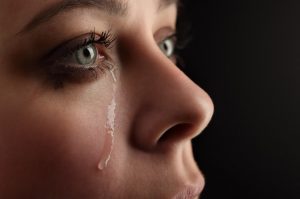When Kate Cries We’re Happy!
 Researchers say the reason we enjoy sad movies such as Titanic or Atonement is that they actually make us happier – but these same researchers may not realise that the homeopathic parallels behind the happiness.
Researchers say the reason we enjoy sad movies such as Titanic or Atonement is that they actually make us happier – but these same researchers may not realise that the homeopathic parallels behind the happiness.
It’s easy to think that homeopathy is about cute little bottles of potentised remedies – but it isn’t.
Homeopathy exists because of a natural law, Law of Similars, that governs the relationship between “similars’ and the effects they produce. Homeopaths exploit these relationships for medicinal purposes – in other words, they use symptom producing remedies (medicines) to treat and prevent diseases with similar symptoms.
So what does this law have to do with sad movies?
It explains why some of us feel happier after (not during) a heart-rending movie when an emotion or experience portrayed on the screen resonates with an unresolved emotion within us. The similarity between the two emotions has a cancelling out effect that eases our own internal unhappiness; as a result, we feel better.
This Law of Similars effect also happens elsewhere in life, usually unnoticed. For example:
- Just like similar symptoms, similar poles of magnets repel each other (while the opposites attract)
- Soap removes oil from our hands because of its fat content
- Tuning forks of the same key both resonate with the same sound even though only one was struck.
- Damp soil absorbs water more easily than dry soil
- Cancer causing radiation is used to treat cancer
- Stimulant medications such as Ritalin, Concerta and dexamphetamine (that would cause over-stimulation in a healthy person) are given to calm hyperactive children
- Psychotherapy approaches that encourage people to revisit their point of emotional pain ultimately bring acceptance and relief – and this happens in a simple way with sad movies
All of the above phenomena work by the Law of Similars and the homeopathic effect it creates. Can you think of other instances?
Another example is that of the highly poisonous plant, Belladonna, also known as Deadly Nightshade. Just one leaf can kill an adult while smaller amounts cause headaches, hot dry skin, red rashes, dilated pupils, confusion and hallucinations. If someone this set of symptoms, whether they have eaten Belladonna or not, a safe potentised dose of Belladonna will counteract those symptoms, leading to the person’s recovery.
Potentised Belladonna has also been used as a homeopathic preventative. Because its symptoms are similar to types of scarlet fever or meningitis, it has been used for protection during epidemics; things that are similar not only treat but also prevent.
The reason why some of us feel happier after a movie like Titanic is because of this Law of Similars effect. If the movie mimics a grief, loss or emotion that we have also experienced, it triggers a reciprocal healing effect in us.
But what about those who don’t feel happy after watching sad movies – those of us who are traumatised and upset by the events? This happens when we have not yet experienced of the depth of emotion and distress portrayed on the screen.
For the most part, occasional upsets from such exposures are harmless and create resilience; we recover with an increased awareness of what others experience. But occasionally, we don’t.
If you have been traumatised by an emotional experience, the thing to remember is that while avoidance brings temporary relief, a like-treats-like approach can resolve the trauma completely. Your local homoeopath or counsellor should be able to help in this process, or maybe even a visit to the next tear-jerker at your local cinema? A quick dose of like-treats-like works wonders.
Resources
Tragedy Viewers Count Their Blessings: Feeling Low on Fiction Leads to Feeling High on Life







